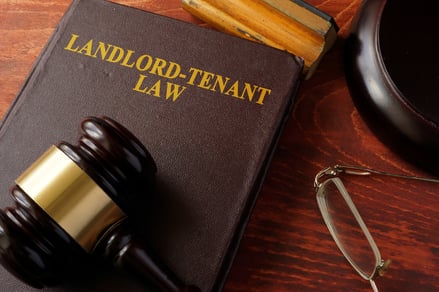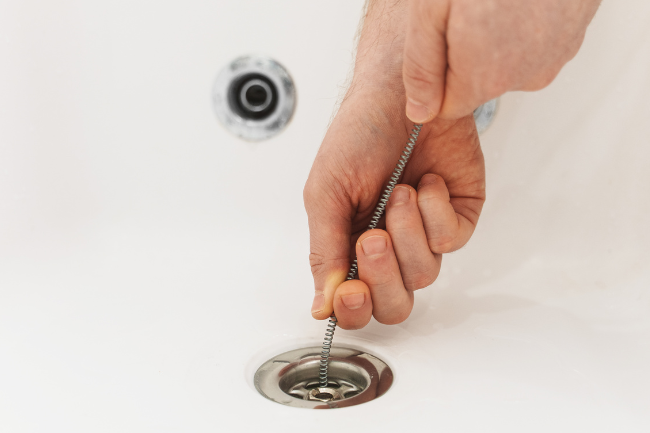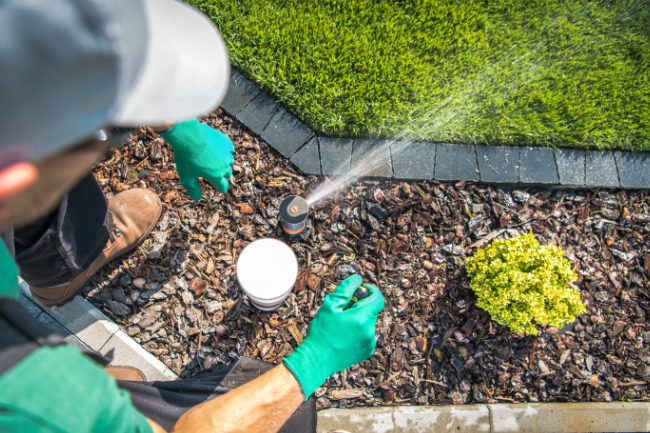California Landlord Plumbing Responsibilities: Know Your Rights!
Posted by Express Sewer & Drain Team on
 What’s worse than a clogged or leaking toilet or sink? Having a landlord who won’t repair them! Through the years, many of our team members have been dispatched to homes and apartments where the resident complained of having to pay for plumbing repairs out of his or her own pocket because their landlord was non-responsive.
What’s worse than a clogged or leaking toilet or sink? Having a landlord who won’t repair them! Through the years, many of our team members have been dispatched to homes and apartments where the resident complained of having to pay for plumbing repairs out of his or her own pocket because their landlord was non-responsive.
\Now, although we’re plumbing professionals, not legal experts, we do know enough to tell you that that’s not right. Here’s what you should know about tenant and landlord laws in California when it comes to plumbing.
California Tenant Plumbing Responsibilities
Before we look at what the landlord is responsible for, let’s make sure that you, as the tenant, aren’t at fault. This is important because if you violate your obligations as a tenant under California law, creating the undesirable condition, your landlord might be completely or partially off the hook. In these cases it’s considered “tenant breaks, tenant pays.”
For example, if you or a guest put improper items down the sink or toilet, causing it to back up, the landlord is not obligated to pay for it. While some landlords will have the repairs completed and then charge the tenant, others will have you make the plumbing arrangements and payments on your own. Either way is acceptable and should be outlined in the lease.
California Landlord Plumbing Responsibilities
California law states that tenants are entitled to rental property that is habitable, meaning it meets basic structural, health, and safety standards. This includes plumbing. You can find the entire list of what constitutes “substandard living conditions” in California in the state’s Health and Safety Code section 17920.3.
When it comes to plumbing and plumbing related issues in dwelling units, living conditions are considered substandard when there is:
- Lack of or improper toilet, bathtub, shower, or kitchen sink
- Lack of hot and cold running water to plumbing fixtures
- Lack of adequate heating
- Lack of or improper operation of required ventilating equipment
- Dampness in habitable rooms.
- Visible mold growth (excluding minor surface molds)
- Lack of connection to required sewage disposal system
Because it is considered urgent when plumbing doesn't work, the landlord must arrange for repairs as soon as possible. Please note that local governments have their own city or county building and housing codes which may be more thorough than California’s general housing law. If you are not able to resolve your structural, plumbing, or mold issues with your landlord in Sacramento County, you should contact code enforcement at Sacramento County 311 Connect.
Two Options When the Landlord Won’t Make Repairs
When you encounter a problem in your rental unit, the first thing you should do is put it in writing. Even if you’ve already spoken to your landlord about the issue, this creates a paper trail should things get ugly. You’ll what you’ll want to describe in the letter or email:
- The overall issue in detail (if applicable, snap some photos of the problem too)
- How it impacts you and your quality of living and/or health
- Steps you’ve taken to remedy the situation (if you’ve paid for anything during DIY attempts, note that)
- What you think needs to be done and when you expect it to be completed
NOLO provides a free download of a Tenant's Notice of Needed Repairs that you can use to get started. One last thing to note: if your landlord is initially responsive and agrees to take action, be sure to write down what he or she says they intend to do and the timeline for repair; send a copy to the landlord and keep one for yourself. This way, if they don’t follow through, you have a record of the agreed-upon plan of action. Now, if your landlord ignores your requests for repairs, you have a few options.
1. Repair and Deduct
Is your landlord refusing to take care of the rental plumbing problem, or not acting quickly enough? According to California law, you can arrange for the repairs and then deduct the cost from the monthly rent, or purchase what you need to do it yourself and deduct the cost of the repair materials. A few things to do before repair:
- Notify your landlord in writing of the problem first.
- Allow the landlord a reasonable amount of time to remedy the problem (usually 30 days, unless the issue is urgent, which is often the case when it comes to plumbing problems).
- Gather bids or collect pricing information from three sources. Be sure to select a licensed professional for tasks that require a license.
A few more things to note:
- Repair or replacement must cost less than one month's rent.
- You can only “repair and deduct” up to two times within a year.
- You must not be responsible for the problem.
- Following the repair, explain why you had to have it done in a letter or email to your landlord so they understand why your rent payment is lower; be sure to attach copies on the invoice or receipt.
You can read more about California repair and deduct law in civil codes 1942 & 1942.5.
Withhold Rent
When the plumbing problem is a big one and repair or replacement parts will cost more than your rent, your other option is to withhold rent payment. This means that you stop paying rent to the landlord until the repairs are made. Of course, this option is not without risk. If you don’t pay rent, your landlord can file an eviction lawsuit. If this happens, and the judge decides that you weren't justified in withholding rent (i.e., you caused the problem, the problem wasn’t severe enough to warrant withholding rent, or there were other circumstances unbeknownst to you), you will be evicted.
So, before withholding rent, be sure you can confidently say yes to the following eight questions:
- Is the problem serious, potentially risking your health or safety?
- Did someone other than you or a guest cause the problem?
- Did you notify the landlord in writing about the problem?
- Did you give the landlord a reasonable amount of time to fix the problem?
- Have you consulted with a lawyer or someone knowledgeable about tenant laws to confirm you’re justified in withholding rent?
- Was “repair and deduct” not an option due to high cost?
- Are you willing to risk eviction if the judge decides against you?
- If you’re evicted, can you find a suitable place to live?
Pro-Tip: If you decide to withhold rent, consider putting the usual payment into another account (called an escrow account). While California law doesn’t require this, it does show the court, if you have to go before a judge, that you are not benefiting financially by withholding rent and that you have the money available to pay should the plumbing problem be corrected.
Express Sewer & Drain is Here for You
We understand it can be frustrating when a landlord isn’t taking care of a property as outlined in a lease agreement, or as stated by California law. If you’re experiencing a plumbing issue, we can provide a free quote to help you decide whether repair and deduct is an option you wish to pursue. Or, if your landlord has agreed to repairs and wants you to make the arrangements, you can count on us for quality, professional service at your Sacramento rental property.
Topics: Home Plumbing







